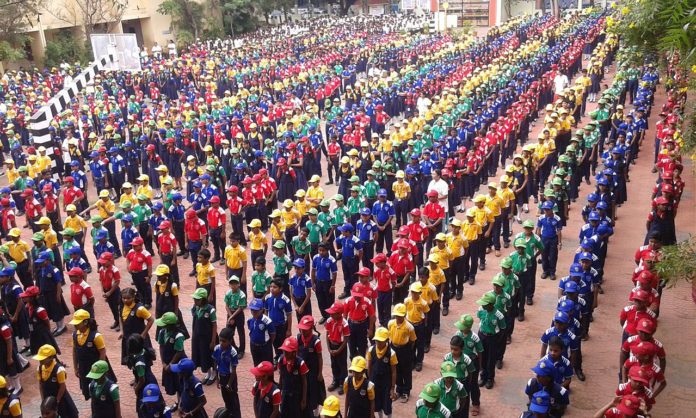Prevalence of vitamin D deficiency in India is estimated to be 70-100%
In a unique initiative, the country’s apex food standards body has decided to start a campaign for shifting school Assembly timings to noon instead of morning.
The move, feels the Food Safety and Standards Authority of India, would help counter vitamin D deficiency. The campaign will be launched on Monday. FSSAI has tied up with NDMC and CBSE to spread the word on the health importance of exposure to the sun.
“Project Dhoop’s Noon Assembly is a unique initiative to urge schools to shift their morning assembly to noon assembly as 11AM to 1PM is the best time to get Vitamin D from sunlight.”
A fat soluble vitamin, vitamin D is essential for healthy bones and the best source of vitamin D is sunlight. The pigment melanin induces synthesis of vitamin D in skin cells when exposed to sunlight. Only a handful of food items, most of them of animal origin naturally contain Vitamin D. It is found in fortified dairy products and occurs naturally in some fish, fish liver oils, and egg yolks.
A statement issued on behalf of FSSAI reads: “Project Dhoop’s Noon Assembly is a unique initiative to urge schools to shift their morning assembly to noon assembly as 11AM to 1PM is the best time to get Vitamin D from sunlight.”
In India particularly in north India rampant vegetarianism has always been a vitamin D deficiency red flag but increased use of air conditioners both in the house and in cars and school buses has limited sun exposure leading to what many experts feel is a vitamin D deficiency epidemic.
According to an article published in 2014 in the journal Nutrients, “Vitamin D deficiency prevails in epidemic proportions all over the Indian subcontinent, with a prevalence of 70%–100% in the general population. In India, widely consumed food items such as dairy products are rarely fortified with vitamin D. Indian socioreligious and cultural practices do not facilitate adequate sun exposure, thereby negating potential benefits of plentiful sunshine.”
These factors lead to a situation where subclinical vitamin D deficiency is highly prevalent in both urban and rural settings, and across all socioeconomic and geographic strata.


